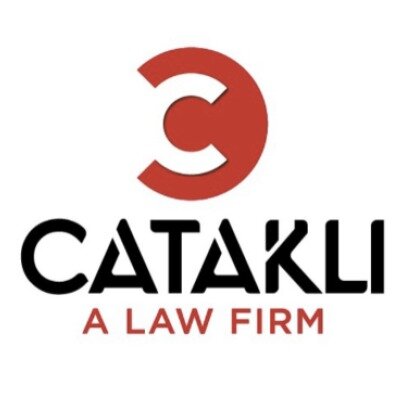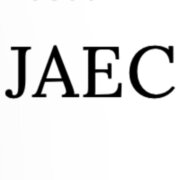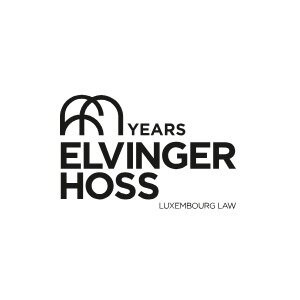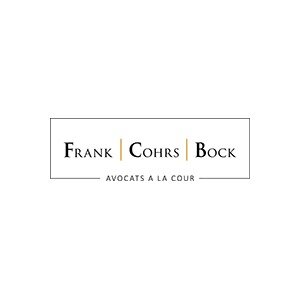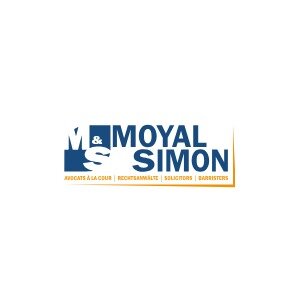Best Funds & Asset Management Lawyers in Luxembourg
Share your needs with us, get contacted by law firms.
Free. Takes 2 min.
Or refine your search by selecting a city:
List of the best lawyers in Luxembourg
About Funds & Asset Management Law in Luxembourg
Luxembourg is widely regarded as a global leader in the funds and asset management industry. Thanks to its investor-friendly regulatory environment, stable economy, and prime location within the European Union, Luxembourg has become a top choice for establishing and managing investment funds. Funds and asset management law in Luxembourg governs how investment funds are structured, managed, and regulated, ensuring that investment vehicles operate transparently and in the best interests of investors. From UCITS (Undertakings for the Collective Investment in Transferable Securities) to alternative investment funds, the legal framework covers a wide spectrum of fund types and activities, making it a cornerstone of Luxembourg's financial sector.
Why You May Need a Lawyer
Engaging a lawyer with expertise in funds and asset management law can be essential in a variety of situations. Individuals or organizations should consider seeking legal help when:
- Establishing or structuring a new investment fund
- Selecting the most appropriate fund vehicle or legal form
- Ensuring regulatory compliance with the CSSF (Commission de Surveillance du Secteur Financier) and other authorities
- Drafting or reviewing fund documentation, such as prospectuses or constitutive documents
- Addressing cross-border issues and leveraging EU passporting rights
- Dealing with fund mergers, liquidations, or redomiciliations
- Responding to investor disputes or regulatory investigations
- Implementing anti-money laundering (AML) and counter-terrorism financing (CTF) policies
- Advising on taxation or fiscal matters related to investments and distributions
Navigating the legal complexities of Luxembourg's funds and asset management sector without professional guidance can expose individuals and businesses to significant compliance and operational risks.
Local Laws Overview
Luxembourg's funds and asset management sector is underpinned by comprehensive legislation and regulatory oversight. Some of the key laws and regulations include:
- Law of 17 December 2010 (106/2010) - Governing UCITS and providing a harmonized framework for collective investment in transferable securities.
- Law of 12 July 2013 - Regulating alternative investment fund managers (AIFMs) in line with the EU Alternative Investment Fund Managers Directive (AIFMD).
- Specialized Investment Fund (SIF) Law (13 February 2007) - Offering a flexible structure for specialized investors with lighter regulatory constraints than UCITS.
- Reserved Alternative Investment Fund (RAIF) Law (23 July 2016) - Allowing swift launch of alternative investment funds under the supervision of an authorized AIFM, without direct CSSF approval.
- CSSF Regulation - The primary regulatory authority, CSSF, oversees licensing, compliance, and ongoing supervision of funds and asset managers.
- Anti-Money Laundering Laws and Regulations - Strict AML and CTF rules apply to all funds, managers, and service providers, demanding thorough due diligence and reporting processes.
Luxembourg also leverages EU regulations, such as MiFID II and PRIIPs, ensuring market integrity, investor protection, and harmonization across Europe. Taxation is another important element, with Luxembourg offering many advantages including favorable regimes for investment funds and mechanisms to avoid double taxation.
Frequently Asked Questions
What types of investment funds can be established in Luxembourg?
Luxembourg allows for various fund structures, including UCITS, SIFs, SICARs (investment companies in risk capital), Part II funds, and RAIFs. Each has different regulatory and investor eligibility requirements.
Who supervises funds and asset managers in Luxembourg?
The Commission de Surveillance du Secteur Financier (CSSF) is the main regulatory body responsible for supervision, licensing, and compliance of investment funds and their managers.
What is the difference between UCITS and AIFs in Luxembourg?
UCITS are standardized retail investment funds regulated for broad marketing across the EU, while AIFs (Alternative Investment Funds) are generally targeted at professional investors and allow more flexible investment strategies.
How long does it take to set up a fund in Luxembourg?
The timeframe varies by fund type. For example, RAIFs can be set up relatively quickly (a few weeks) since they do not require prior CSSF approval, while UCITS or SIFs often take longer due to regulatory review.
Are there minimum capital requirements for funds?
Yes, most funds in Luxembourg must meet minimum capital thresholds. For example, UCITS require at least 1.25 million euros, while SIFs require 1.25 million euros within twelve months of authorization.
Can non-EU managers establish funds in Luxembourg?
Non-EU managers can establish funds, but distribution within the EU may require compliance with AIFMD rules and cooperation arrangements between supervisory authorities.
What compliance obligations do fund managers face?
Fund managers must adhere to rules on anti-money laundering, risk management, transparency, reporting, and investor protection. Ongoing compliance and audit requirements are enforced by the CSSF.
Is Luxembourg a tax-efficient jurisdiction for funds?
Luxembourg is known for its favorable tax regime, including tax exemptions for most investment funds, no withholding tax on distributions (except in rare cases), and extensive double tax treaty networks.
How are investors protected in Luxembourg?
Strict investor protection measures exist, such as segregation of assets, regulatory supervision, transparency requirements, and, for UCITS, specific liquidity and diversification rules.
What are the main ongoing obligations for a fund once established?
Ongoing obligations include regular reporting to the CSSF, annual audits, compliance with anti-money laundering laws, disclosures to investors, and prompt notification of any material changes to the fund.
Additional Resources
Several resources are available for those seeking more information or support regarding funds and asset management in Luxembourg:
- CSSF (Commission de Surveillance du Secteur Financier) - The primary regulatory authority for the financial sector.
- Luxembourg House of Financial Technology (LHoFT) - Supports innovation and technology adoption in the financial industry.
- Luxembourg for Finance (LFF) - The national agency for promoting Luxembourg's financial centre.
- Association of the Luxembourg Fund Industry (ALFI) - Represents the interests of the Luxembourg investment fund community, offering publications, guidance, and events.
- Chamber of Commerce of Luxembourg - Assists with business formation, networking, and advice.
Next Steps
If you need legal assistance in funds and asset management in Luxembourg, consider the following steps:
- Clarify your objectives and gather relevant information and documents related to your fund or investment plans.
- Research and identify law firms or legal experts specializing in Luxembourg funds and asset management law.
- Contact a lawyer for an initial consultation to discuss your needs, challenges, and objectives.
- Prepare specific questions or areas where you need advice, such as fund structuring, regulatory compliance, or ongoing management.
- Assess your legal options and collaborate closely with your selected advisor to ensure compliance and achieve your goals efficiently.
By taking these steps, you can navigate the complexities of the Luxembourg funds and asset management sector with confidence and safeguard your interests.
Lawzana helps you find the best lawyers and law firms in Luxembourg through a curated and pre-screened list of qualified legal professionals. Our platform offers rankings and detailed profiles of attorneys and law firms, allowing you to compare based on practice areas, including Funds & Asset Management, experience, and client feedback.
Each profile includes a description of the firm's areas of practice, client reviews, team members and partners, year of establishment, spoken languages, office locations, contact information, social media presence, and any published articles or resources. Most firms on our platform speak English and are experienced in both local and international legal matters.
Get a quote from top-rated law firms in Luxembourg — quickly, securely, and without unnecessary hassle.
Disclaimer:
The information provided on this page is for general informational purposes only and does not constitute legal advice. While we strive to ensure the accuracy and relevance of the content, legal information may change over time, and interpretations of the law can vary. You should always consult with a qualified legal professional for advice specific to your situation.
We disclaim all liability for actions taken or not taken based on the content of this page. If you believe any information is incorrect or outdated, please contact us, and we will review and update it where appropriate.
Browse funds & asset management law firms by city in Luxembourg
Refine your search by selecting a city.



